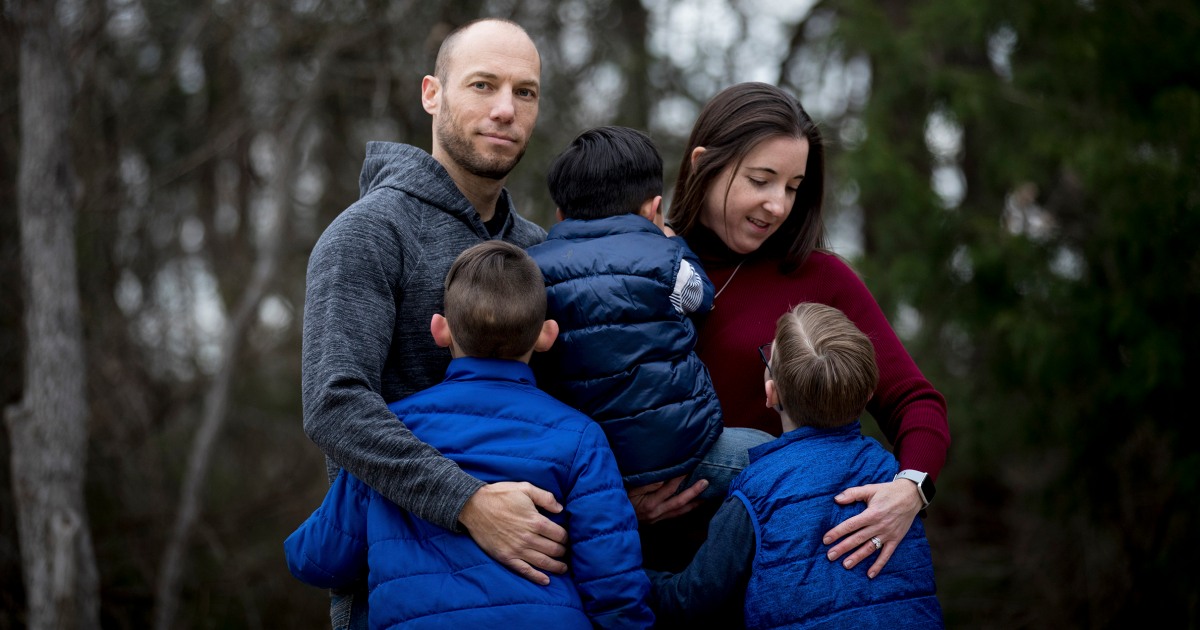WASHINGTON — The Supreme Court on Thursday handed Native Americans a major victory by rejecting a challenge to a federal law intended to protect children and reinforce tribal identity.
In a 7-2 vote, the court rejected a series of claims seeking to invalidate parts of the Indian Child Welfare Act enacted in 1978 to keep Native American children within tribes. Among the provisions challenged was one that gives preference to Native Americans seeking to foster or adopt Native American children.
President Joe Biden said in a statement that the decision «upholds vital protection for tribal sovereignty and Native children.»
Court, in a judgment written by Justice Amy Coney Barrett, said the challengers had no legal standing to challenge whether the preemption provisions violated the equal protection clause of the 14th Amendment by discriminating on the basis of race.
Barrett wrote that the challengers had sued the federal government, but noted that it is state courts that enforce the preference provisions and that state agencies place children. Therefore, their claims could not be fixed by the federal government and must be dismissed, she said.
Emphasizing that the issue of racial discrimination has yet to be decided, conservative Justice Brett Kavanaugh wrote in a concurring opinion that it is a «serious» issue that the court should decide in a later case.
However, the majority concluded that Congress has the authority to legislate on the issue of Native American family law and rejected challenges on those grounds.
Barrett wrote that the challengers were seeking a «constitutional exemption» saying Congress cannot legislate family law, but since the founding of the United States it has been clear that Congress has broad authority to pass laws on a wide range of issues. topics.
«Family law is no exception,» he said.
The ruling will come as a great relief to the tribes, who worried that the court would weaken or completely strike down a law that plays an important role in maintaining tribal identity.
«By ruling on the side of the health and safety of children, the US Constitution and centuries of precedent, the judges have landed on the right side of history,» said the leaders of the four tribes involved in the case, the Cherokee Nation, Morongo Band of Mission Indians, the Oneida Nation and the Quinault Indian Nation, in a joint statement. Another tribe, the Navajo Nation, also upheld the law.
«With these latest political attacks on ICWA now behind us, we look forward to moving forward and focusing on what’s best for our children,» the tribal leaders added.
The ruling also marks the second time this month that the court has rejected conservative efforts to rein in laws intended to protect minority groups, following last week’s ruling to reaffirm a key part of the Voting Rights Act. The court has yet to rule on another big race-related case that could end consideration of race in college admissions.
Two of the court’s six conservative justices, Clarence Thomas and Samuel Alito, dissented.
Alito wrote that while Barrett said the law referred to vulnerable children, the ruling «harms the rights and interests of these children and their parents, as well as our Constitution’s division of federal and state authority.»
The law was enacted in response to a long history of Native American children being disproportionately separated from their families by states and the federal government in an effort to assimilate them into Anglocentric English-speaking society and loosen tribal ties.
The challengers are led by Chad and Jennifer Brackeen, a white evangelical Christian couple seeking to adopt a Native American child, as well as from the states of Texas, Indiana and Louisiana. The couple adopted the child after a possible placement with a Navajo family fell through. They are also seeking to adopt the boy’s half-sister, known in court documents as YRJ, who lives with them.
Matthew McGill, an attorney representing the Brackeens, said he will pursue the racial discrimination claim in adoption proceedings in state court.
«Our main concern is what today’s decision means for the girl, YRJ, now five years old, who has been part of the Brackeen family for almost her entire life,» he added.
The law was championed by the Biden administration and the Five Tribes. The tribes warned that striking down the provisions of the law on the grounds of racial discrimination would threaten centuries of laws that treat Native American tribes as distinct entities.
Both sides appealed to the Supreme Court after the New Orleans-based US Court of Appeals for the Fifth Circuit in 2021 issued a fragmented decision in which the justices were divided on key issues. A district judge had previously ruled the law unconstitutional.
The Supreme Court has been sharply divided on two major recent cases on Native American issues. In 2020, the court expanded tribal authority in Oklahoma in a 5-4 ruling written by Judge Neil Gorsuch. But in a follow-up case last year that sought to limit the impact of the earlier ruling, the court reversed course, ruling 5-4 to expand state power over tribes in certain cases.
Between the two rulings, liberal Justice Ruth Bader Ginsburg, who had sided with the tribes in the 2020 case, died and was succeeded by Barrett, creating the court’s current 6-3 conservative majority. Barrett cast the deciding vote against the tribes in the second case, while Gorsuch joined the three dissenting liberal justices.
Gorsuch, who has proven himself an advocate for Native American rights in several cases, mentioned in a concurring opinion how the court in the past has often failed to bring justice to the tribes.
“Often, Native American tribes have come to this courthouse seeking justice only to walk away empty-handed,” he wrote. «But that’s not because this court doesn’t have justice to offer them.»

